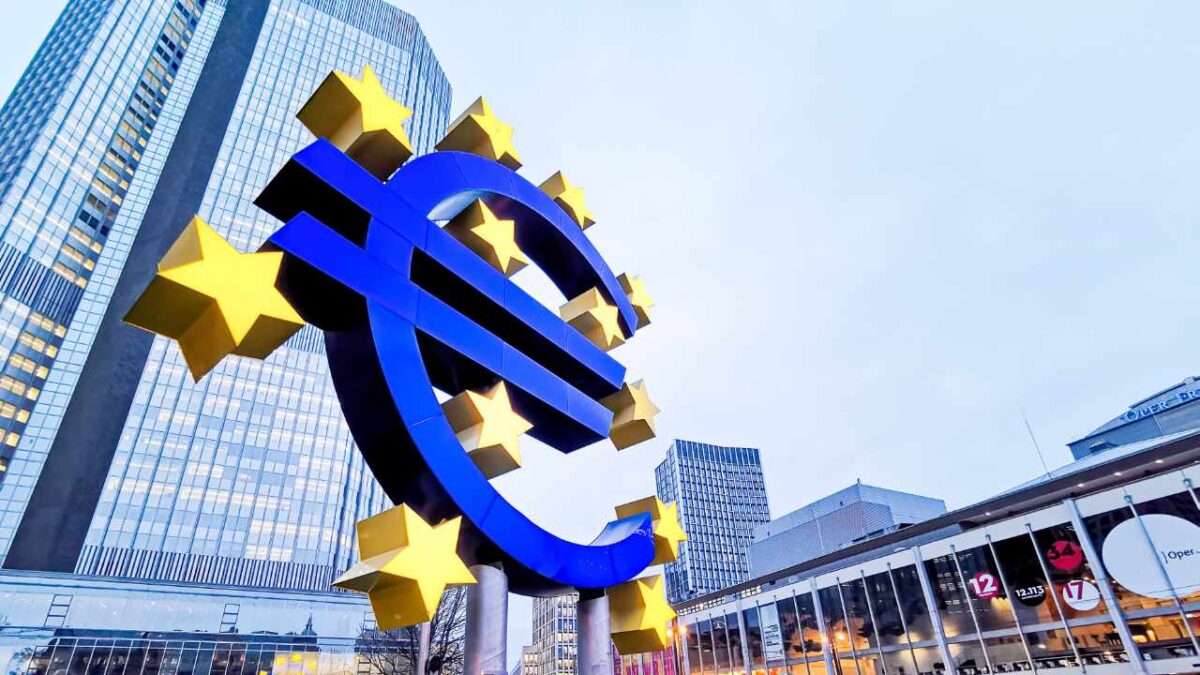
The European Central Bank (ECB) is working to harmonize the regulatory framework governing crypto activities and services in the EU. The regulator noted that several regulatory initiatives at the European and international levels are being finalized.
ECB’s Regulatory Plan for Crypto Assets
The European Central Bank (ECB) outlined its plan to harmonize the regulatory framework governing crypto activities and services in the EU Wednesday. The regulator explained that banks are increasingly considering whether to offer crypto products and services, and it is the ECB’s role to “ensure they do so safely and soundly.”
The ECB described that it works closely with national regulators “to ensure a consistent approach and high standards across countries,” elaborating:
There is currently no harmonized regulatory framework governing crypto-asset activities and services in the EU.
“This will change with the finalization of several regulatory initiatives at [the] European and international level,” the ECB detailed, mentioning the markets in crypto-assets (MiCA) proposal to regulate the crypto sector in the EU. Internationally, the Basel Committee on Banking Supervision plans to issue its rules on the prudential treatment of crypto exposures for banks.
The ECB pointed out that the regulatory frameworks for crypto “diverge quite extensively” between EU countries. For example, certain crypto activities are subject to a banking license requirement in Germany. Several banks have requested authorization to conduct crypto activities in the European country, the ECB said, adding:
It is in this context that the ECB is taking steps to harmonize the assessment of licensing requests.
The ECB also emphasized that it is working on assessing the risks posed by crypto assets, stating:
Crypto assets put the spotlight on certain types of risk, starting with operational and cyber risks, and the ECB is also working to assess these.
In addition, “internal governance arrangements and processes need to take account of the crypto-asset AML/CFT [anti-money laundering/combating the financing of terrorism] risk profile of the institution,” the European regulator stressed.
ECB President Christine Lagarde said in June that “crypto assets and decentralized finance (defi) have the potential to pose real risks to financial stability.” She added: “This would be particularly the case if the rapid growth of crypto-asset markets and services continue … and the interconnectedness with both the traditional financial sector and the broader economy is intensified.”
What do you think about the ECB working to create a harmonized regulatory framework for crypto assets? Let us know in the comments section below.
Image Credits: Shutterstock, Pixabay, Wiki Commons
Disclaimer: This article is for informational purposes only. It is not a direct offer or solicitation of an offer to buy or sell, or a recommendation or endorsement of any products, services, or companies. Bitcoin.com does not provide investment, tax, legal, or accounting advice. Neither the company nor the author is responsible, directly or indirectly, for any damage or loss caused or alleged to be caused by or in connection with the use of or reliance on any content, goods or services mentioned in this article.
Read disclaimer
- Bitcoin
- Bitcoin News
- blockchain
- blockchain compliance
- blockchain conference
- coinbase
- coingenius
- Consensus
- crypto conference
- crypto harmonization
- crypto mining
- cryptocurrency
- decentralized
- DeFi
- Digital Assets
- ECB
- ecb crypto
- ecb cryptocurrency
- ethereum
- Euro
- Euro crypto regulation
- European Countries
- European cryptocurrency regulation
- Germany
- machine learning
- MiCA
- non fungible token
- plato
- plato ai
- Plato Data Intelligence
- PlatoData
- platogaming
- Polygon
- proof of stake
- Regulation
- W3
- zephyrnet













